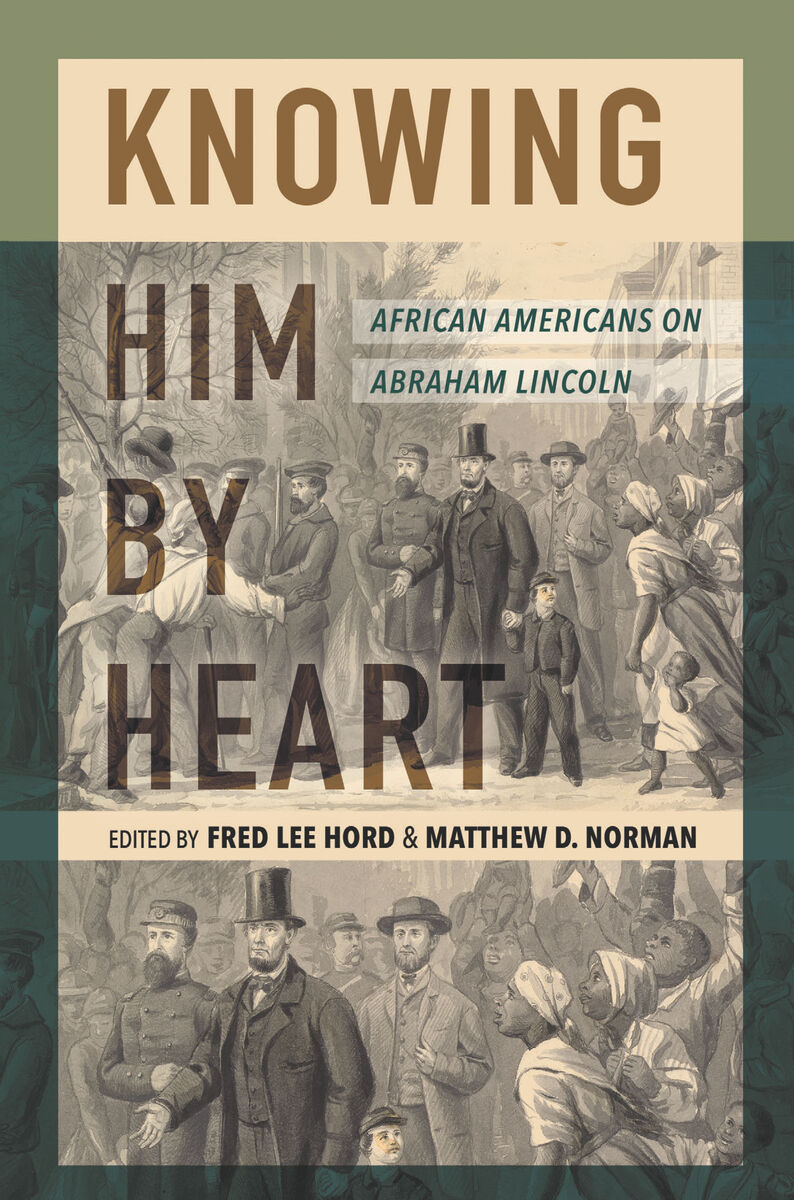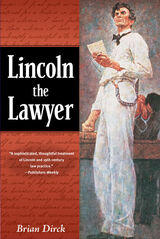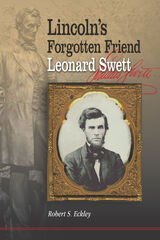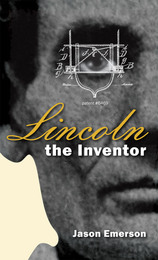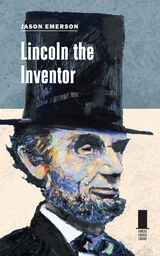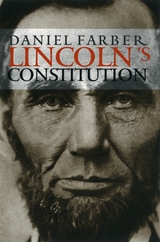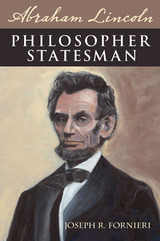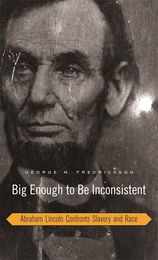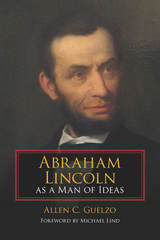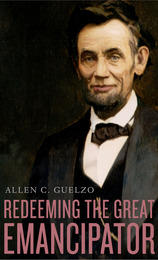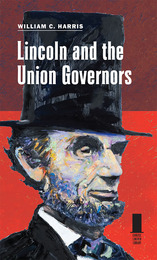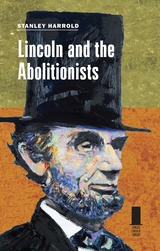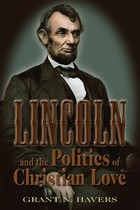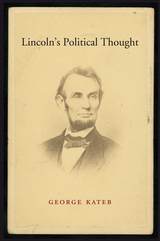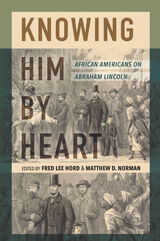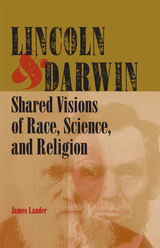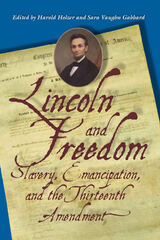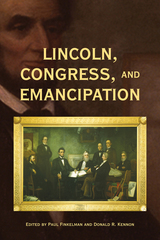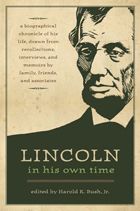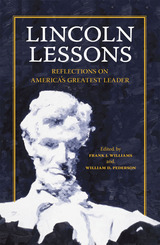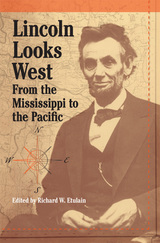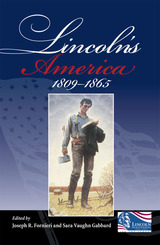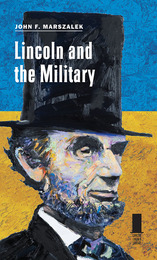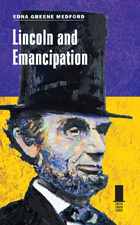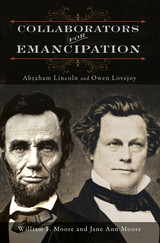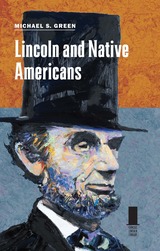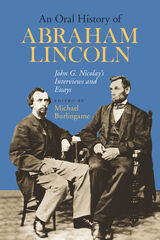contributions by James Oakes, George W Henderson, William Pickens, Kelly Miller, Etta M. T. Cottin, John M Gandy, Fred R Moore, Sylvanie F Williams, Harry C Smith, James H Magee, James L Curtis, Matthew Pinsker, John W. E. Bowen Sr, Cora J Ball, Thomas Nelson Baker, Josephine Silone Yates, James Weldon Johnson, William H Lewis, John H Murphy Sr, Robert R Wright Sr, Theophile T Allain, Oliva Ward Bush-Banks, Gerald J Prokopowicz, Richard W Gadsden, Edward A Johnson, Alice Dunbar-Nelson, Hubert H Harrison, Carter G Woodson, Robert R Moton, Georgia Douglas Johnson, LANGSTON HUGHES, Charles Chesnutt, Walter White, John R Sellers, Lamar Perkins, Samuel A Haynes, William E Lilly, Robert L Vann, William Lloyd Imes, Eugene Gordon, Arthur W Mitchell, Grace Evans, Aaron H Payne, Claude McKay, Jennifer L Weber, Roscoe Conkling Simmons, Joel A Rogers, Mary McLeod Bethune, John Hope Franklin, Ella Baker, Luther Porter Jackson, Willard Townsend, Ralph J Bunche, Roy Wilkins, Mordecai W Johnson, Frederick Douglass, Carl J Murphy, Jackie Robinson, Martin Luther King Jr, Thurgood Marshall, Edith Sampson, Benjamin Quarles, St. Clair Drake, Charles H Wesley, Daisy Bates, Julius Malcolm X, H. Ford Douglas, Gwendolyn Brooks, Julius Lester, Lerone Bennett Jr, Henry Lee Moon, John H Sengstacke, Norman E. W. Hodges, Arvarh E. Strickland, Mary Frances Berry, Vincent Harding, Clarence Thomas, Thomas Hamilton, Barbara Jeanne Fields, Henry Louis Gates Jr, Barack Obama, Robert Hamilton, Jabez P Campbell, Henry McNeal Turner, Daniel Alexander Payne, Henry Highland Garnet, Philip A Bell, Edward M Thomas, Alfred P Smith, Frances Ellen Watkins Harper, George B Vashon, Thomas Strother, Ezra R Johnson, Alexander T CPS, James Smith, Alexander T Augusta, Jeremiah B Sanderson, Osborne P Anderson, Thomas Morris Chester, James H Hudson, John Proctor, Robert Purvis, Hannah Johnson, Leonard A Grimes, Jeremiah Asher, John Willis Menard, Henry African Civilization Society, William Florville, Henry Johnson, Thomas R Street, John H Morgan, Mattild Burr, Amos G Beman, Rodney O. Davis, Richard H Cain, Jean Baptiste Roudanez, Arnold Bertonneau, George E North Carolina Freedmen, Don Carlos Rutter, George E Stephens, James W.C Pennington, S.W. "Africano", Annie Davis, S.W. Chase, Douglas L. Wilson, Sojourner Truth, Martin Delany, George Washington, Isaac J Hill, Alexander H Newton, Jacob Thomas, Angeline R Demby, Henry O Wagoner, George W Le Vere, Elizabeth Keckley, Michael Burlingame, Paul Trevigne, Thomas N.C Liverpool, H Cordelia, George Washington Williams, Emmanuel K Love, William S Scarborough, John Mercer Langston, Peter H Clark, EWS Hammond, Charles W Anderson, Richard Carwardine, Booker T Washington, Harriet Tubman, Julius F Taylor, Ida B Wells-Barnett, Paul Laurence Dunbar, Elizabeth Thomas, Archibald H Grimke, Elizabeth Keckly, William A Sinclair, Jesse Max Barber, Edna Greene Medford, Mary Church Terrell, T. Thomas Fortune, Reverdy C Ransom, W. E. B Du Bois, William Monroe Trotter, Maude K Griffin, Hightower T Kealing, Silas X Floyd, George L Knox and Thomas S Inborden
introduction by Fred Lee Hord and Matthew D. Norman
eISBN: 978-0-252-05370-2 | Cloth: 978-0-252-04468-7
Library of Congress Classification E457.2.K585 2022
Dewey Decimal Classification 973.7092
An unprecedented collection of African American writings on Lincoln
Though not blind to Abraham Lincoln's imperfections, Black Americans long ago laid a heartfelt claim to his legacy. At the same time, they have consciously reshaped the sixteenth president's image for their own social and political ends. Frederick Hord and Matthew D. Norman's anthology explores the complex nature of views on Lincoln through the writings and thought of Frederick Douglass, Ida B. Wells-Barnett, Mary McLeod Bethune, Thurgood Marshall, Malcolm X, Gwendolyn Brooks, Barbara Jeanne Fields, Barack Obama, and dozens of others. The selections move from speeches to letters to book excerpts, mapping the changing contours of the bond--emotional and intellectual--between Lincoln and Black Americans over the span of one hundred and fifty years.
A comprehensive and valuable reader, Knowing Him by Heart examines Lincoln’s still-evolving place in Black American thought.
- Introduction
Frederick Douglass, Emancipation Day Address at Poughkeepsie, New York, August 2, 1858
Frederick Douglass, “The Chicago Nominations,” June, 1860
H. Ford Douglas, Address at Framingham, Massachusetts, July 4, 1860
Frederick Douglass, “The Inaugural Address,” April, 1861
“President Lincoln’s Inaugural,” Editorial in the Weekly Anglo-African, New York, March 16, 1861
“The Fatal Step Backward,” Editorial in the Anglo-African, September 21, 1861
Jabez P. Campbell, “The President and the Colored People,” October 1, 1861, Trenton, New Jersey
Robert Hamilton, “The President’s Message,” Editorial in the Anglo-African, December 7, 1861
Robert Hamilton, “The Hanging of Gordon for Man Stealing,” Editorial in the Anglo-African, March 1, 1862
Henry McNeal Turner on Lincoln’s Proposal for Compensated Emancipation, March 16, 1862
“The Emancipation Message,” Editorial in the Weekly Anglo-African, New York, March 22, 1862
Daniel Alexander Payne, Account of Meeting with Abraham Lincoln, April 1862
Henry Highland Garnet on Emancipation in Washington, DC, May 12, 1862
Philip A. Bell, Editorial on Lincoln’s Revocation of Gen. Hunter’s Emancipation Decree in the Pacific Appeal, San Francisco, California, June 14, 1862
Edward M. Thomas to Abraham Lincoln, Washington, DC, August 16, 1862
Frederick Douglass, “The President and His Speeches,” September, 1862
Resolutions of Newtown, New York Meeting on Lincoln’s Colonization Proposal, August 20, 1862
Alfred P. Smith, Letter to President Lincoln in Response to Colonization Proposal, Saddle River, New Jersey, September 5, 1862
Frances Ellen Watkins Harper on Lincoln’s Colonization Proposal, September 27, 1862
Philip A. Bell, Editorial on the Preliminary Emancipation Proclamation in the Pacific Appeal, San Francisco, California, September 27, 1862
Frederick Douglass, “Emancipation Proclaimed,” October, 1862
George B. Vashon, Open Letter to President Lincoln on Colonization, October, 1862
Henry McNeal Turner, Response to Preliminary Emancipation Proclamation, September 26, 1862
Thomas Strother on Lincoln’s Colonization Proposal, October 4, 1862
Ezra R. Johnson, “The Liberty Bells are Ringing,” October 4, 1862
C. P. S., “The President on Emancipation,” October 4, 1862
Free Black People of Washington, DC, Letter to President Lincoln on Colonization, November 2, 1862
Frederick Douglass, “January First 1863”
Emancipation Celebration at Beaufort, South Carolina, January 1, 1863
Philip A. Bell, “The Year of Jubilee Has Come!” January 3, 1863
Robert Hamilton, “The Great Event,” Anglo-African, January 3, 1863
Emancipation Celebration at Trenton, New Jersey, January 1, 1863
James Smith, Report on Emancipation Celebration at Elmira, New York, January 5, 1863
Jeremiah B. Sanderson, Address at Emancipation Jubilee in San Francisco, January 14, 1863
Osborne P. Anderson, Remarks on the Emancipation Celebration in Chicago, January 1, 1863
H. Ford Douglas to Frederick Douglass, Colliersville, Tennessee, Jan. 8, 1863
Thomas Morris Chester, Speech at Cooper Institute, New York, New York, January 20, 1863
James H. Hudson, Letter to the Editor of the Pacific Appeal, February 25, 1863
Frances Ellen Watkins Harper, “The President’s Proclamation,” March 7, 1863
John Proctor to Abraham Lincoln, Beaufort, South Carolina, April 18, 1863
William Slade to Abraham Lincoln, Washington, DC April 28, 1863
Robert Purvis, Address to the American Anti-Slavery Society, New York, May 12, 1863
Hannah Johnson to Abraham Lincoln, Buffalo, New York, July 31, 1863
Frederick Douglass, “The Commander-in-Chief and His Black Soldiers,” August, 1863
Leonard A. Grimes to Abraham Lincoln, Washington, DC, August 21, 1863
Jeremiah Asher to Abraham Lincoln, Philadelphia, Pennsylvania, September 7, 1863
Robert Hamilton, Editorial on Lincoln’s Letter to James C. Conkling in the Anglo-African, New York, September 12, 1863
Robert Hamilton, Editorial Endorsing Lincoln for a Second Term as President in the Anglo-African, New York, October 24, 1863
African Civilization Society, Address to Abraham Lincoln, Washington, DC, November 5, 1863
Frederick Douglass, Address to the American Anti-Slavery Society, Philadelphia, Pennsylvania, December 4, 1863
Philip A. Bell, Editorial on President Lincoln’s Annual Message in the Pacific Appeal, San Francisco, California, December 12, 1863
William Florville to Abraham Lincoln, Springfield, Illinois, December 27, 1863
Thomas R. Street, Emancipation Day Address, Virginia City, Nevada Territory, January 1, 1864
Philip A. Bell, Editorial Endorsing Lincoln for a Second Term in Office in the Pacific Appeal, San Francisco, California, January 9, 1864
John H. Morgan et al. to Abraham Lincoln, Pensacola, Florida, January 16, 1864
Mattild Burr to Abraham Lincoln, January 18, 1864
Amos G. Beman on the First Anniversary of the Emancipation Proclamation, January 23, 1864
Richard H. Cain to Abraham Lincoln, Washington, DC, January 27, 1864
Jean Baptiste Roudanez and Arnold Bertonneau, Memorial to Abraham Lincoln, March 10, 1864
Petition of North Carolina Freedmen to Abraham Lincoln, April or May, 1864
Don Carlos Rutter to Abraham Lincoln, St. Helena Island, South Carolina, May 29, 1864
George E. Stephens, Letter to the Editor of the Anglo-African, May 26, 1864
James W. C. Pennington, Letter to the Editor of the Anglo-African, New York, June 9, 1864
“Africano,” Letter to the Editor of the Anglo-African, Point Lookout, Maryland, July 18, 1864
Annie Davis to Abraham Lincoln, Belair, Maryland, August 25, 1864
Frederick Douglass to Abraham Lincoln, Rochester, New York, August 29, 1864
Robert Hamilton, Editorial on the Presidential Election in the Anglo-African, New York, September 24, 1864
“Africano,” Letter to Editor of Anglo-African, Point Lookout, Maryland, September 2, 1864
S. W. Chase, Remarks to Abraham Lincoln upon Presenting a Bible, September 7, 1864
Sojourner Truth, Account of Meeting with Abraham Lincoln, October 29, 1864
Robert Hamilton Gives Thanks for Lincoln’s Re-election, November 19, 1864
Martin Delany, Account of Meeting with Abraham Lincoln, February 8, 1865
George Washington to Abraham Lincoln, Hilton Head, South Carolina, March 19, 1865
Thomas Morris Chester, Report on Lincoln’s Visit to Richmond, Virginia, April 4, 1865
Isaac J. Hill, Account of Lincoln’s Visit to Richmond, April 4, 1865
Alexander H. Newton, Account of Lincoln’s Visit to Richmond, April 4, 1865
Jacob Thomas, Sermon Preached in Memory of Abraham Lincoln at AME Zion Church, Troy, New York, April 16, 1865
Resolutions Passed on Lincoln’s Assassination in Middletown, Connecticut, April 20, 1865
Martin Delany, Proposal for a Monument to Abraham Lincoln, April 20, 1865
Robert Hamilton, “Thy Will Be Done” April 22, 1865
James W. C. Pennington on Lincoln’s Funeral Procession through New York City, April 27, 1865
Angeline R. Demby, Poem in Memory of Abraham Lincoln, April 29, 1865
Reaction to Lincoln’s Assassination in Baltimore, April, 1865
Henry O. Wagoner, Report on Lincoln’s Funeral Procession in Chicago, May 2, 1865
George W. Le Vere, Eulogy of Abraham Lincoln, New Orleans, Louisiana, May 22, 1865
Frederick Douglass, Speech at Cooper Institute, New York, June 1, 1865
Frederick Douglass, Draft of A Speech on Lincoln, circa December, 1865
Address of the Illinois Convention of Colored Men to the American People, Galesburg, Illinois, October 16-18, 1866
Elizabeth Keckley, Behind the Scenes, 1868
Paul Trevigne, Editorial on Emancipation Day in the New Orleans Tribune, New Orleans, Louisiana, January 1, 1869
Thomas N. C. Liverpool, Address on Lincoln’s Birthday, Cincinnati, Ohio, Feb. 12, 1873
Frederick Douglass, Address at Dedication of the Freedmen’s Monument, Washington, DC, April 14, 1876
H. Cordelia Ray, “Lincoln,” Poem written for Dedication of the Freedmen’s Monument, Washington, DC, April 14, 1876
George Washington Williams, A History of the Negro Race in America, 1882
Emmanuel K. Love, Emancipation Day Address at Savannah, Georgia, January 2, 1888
William S. Scarborough>, Remarks at Ohio Republican League Club Lincoln Banquet, Columbus, Ohio, February 13, 1888
John Mercer Langston, Memorial Day Address at Washington, DC, May 30, 1891
Peter H. Clark on Lincoln and Emancipation, May 18, 1892
Frederick Douglass, Address at Lincoln Birthday Celebration, Brooklyn, New York, February 13, 1893
E. W. S. Hammond, “Lincoln on the Negro,” May 11, 1893
Charles W. Anderson, Address on Emancipation Proclamation, Chicago, Illinois, February 12, 1895
Booker T. Washington, Address at the Union League Club, Brooklyn, New York, February 12, 1896
Harriet Tubman, Statement on Abraham Lincoln, July, 1896
Julius F. Taylor, Critique of Lincoln and the Emancipation Proclamation, August 7, 1897
Ida B. Wells-Barnett, Emancipation Day Address at Decatur, Illinois, September 22, 1899
Paul Laurence Dunbar, “Lincoln,” 1899
Elizabeth Thomas, Reminiscence of Abraham Lincoln, 1900
Archibald H. Grimke, “Abraham Lincoln,” March, 1900
Elizabeth Keckly on Lincoln, 1901
“The Negro’s Natal Day,” February, 1904
William A. Sinclair, The Aftermath of Slavery: A Study of the Condition and Environment of the American Negro, 1905
Jesse Max Barber, “Abraham Lincoln and the Negro,” February, 1905
Mary Church Terrell, Address on Abraham Lincoln, New York, February 13, 1905
T. Thomas Fortune, Address on Lincoln, Montclair, New Jersey, February 16, 1906
Reverdy C. Ransom, Address on Abraham Lincoln, circa 1907
W. E. B. Du Bois, Address Delivered at Hull House, Chicago, Illinois, February 12, 1907
William Monroe Trotter, “Proposed Mass. Lincoln Centennial,” Editorial in the Guardian on Celebration of Lincoln’s Birthday, Boston, Massachusetts, January 18, 1908
Maude K. Griffin, “Lincoln--Man of Many Sides,” April, 1908
Hightower T. Kealing, “Lincoln’s Birthday--The Great American Day,” January, 1909
Silas X. Floyd, Address at Emancipation Day Celebration in Augusta, Georgia, January 1, 1909
George L. Knox, “Celebrating in Memory of Lincoln,” January 2, 1909
Selections from The American Missionary, Special Issue on Lincoln, February, 1909: Thomas S. Inborden, George W. Henderson, William Pickens, Kelly Miller, Etta M. T. Cottin, Archibald H. Grimke, and John M. Gandy
Fred R. Moore, “Lincoln and the Negro,” February, 1909
Sylvanie F. Williams, “Abraham Lincoln and Emancipation,” February, 1909
Harry C. Smith, “Lincoln in a True Light,” February 6, 1909
James H. Magee, Address at Lincoln Centennial Commemoration, Springfield, Illinois, February 12, 1909
Booker T. Washington, Address at Republican Club of New York, New York, February 12, 1909
James L. Curtis, Address on Centennial of Lincoln’s Birth, February 12, 1909
John W. E. Bowen Sr., Address at Lincoln Centennial Commemoration, Chicago, Illinois, February 12, 1909
Cora J. Ball, “On Lincoln’s Centennial,” February 13, 1909
Fred R. Moore, “Lincoln Day And The White Folks,” March, 1909
Thomas Nelson Baker, “Speech of Lincoln,” March-April, 1909
Josephine Silone Yates, “Lincoln the Emancipator,” April, 1910
Henry McNeal Turner, “Reminiscences of the Proclamation of Emancipation,” January, 1913
James Weldon Johnson, “Father, Father Abraham,” February, 1913
William H. Lewis, Speech before the Massachusetts General Assembly, February 12, 1913
W. E. B. Du Bois, Address to Commemorate the Fiftieth Anniversary of the Emancipation Proclamation and Lincoln’s Birthday, Chicago, Illinois, February 12, 1913
Booker T. Washington, Address at Rochester, New York, February 12, 1913
John H. Murphy Sr., “A Government for the People,” July 5, 1913
Robert R. Wright Sr., Address at the Emancipation Proclamation Exposition, Philadelphia, Pennsylvania, September 14, 1913
Theophile T. Allain, Address to Commemorate the Fiftieth Anniversary of the Emancipation Proclamation, Decatur, Illinois, September 23, 1913
Olivia Ward Bush-Banks, “Abraham Lincoln,” 1914
Grand Household of Ruth, Resolution on Equal Suffrage, August, 1915
Richard W. Gadsden, Address on Lincoln’s Birthday, Savannah, Georgia, February 12, 1918
Edward A. Johnson, Speech on Lincoln’s Birthday in the New York State Assembly, Albany, New York, February 12, 1918
Alice Dunbar-Nelson, “Lincoln and Douglass,” 1920
Hubert H. Harrison, “Lincoln and Liberty--Fact Versus Fiction,” March, 1921
Carter G. Woodson, The Negro in Our History, 1922
Robert R. Moton, Draft for an Address at the Dedication of the Lincoln Memorial, Washington, DC, May, 1922
Georgia Douglas Johnson, “To Abraham Lincoln,” 1922
W. E. B. Du Bois, Editorials on Abraham Lincoln in The Crisis, July, 1922 and September, 1922
National Association of Colored Women, Speeches and a Resolution Commemorating Abraham Lincoln, 1923-1924
Langston Hughes, “Lincoln Monument: Washington,” March, 1927
Charles Chesnutt, Address to the Harlan Club, Cleveland, Ohio, February 14, 1928
Walter White, “If Lincoln Were Here,” Radio Address on Lincoln’s Birthday, February 12, 1929
Lamar Perkins, Address in the New York State Assembly, Albany, New York, February 12, 1930
Samuel A. Haynes, Editorial in the Philadelphia Tribune on Lincoln and Emancipation Day, Philadelphia, Pennsylvania, January 7, 1932
William E. Lilly, Set My People Free: A Negro’s Life of Lincoln, 1932
Robert L. Vann, “The Patriot and the Partisan,” Speech Delivered in Cleveland, Ohio September 11, 1932
Carter G. Woodson, “Abolitionists Worried Lincoln,” November 24, 1932
William Lloyd Imes, “A Negro’s Tribute to Lincoln,” Radio Address on Lincoln’s Birthday, February 12, 1935, Station WMCA, New York, February 12, 1935
Eugene Gordon, Editorial on Lincoln, February, 1935
Arthur W. Mitchell, Address in the US House of Representatives, June 1, 1936
Grace Evans, Remarks at Emancipation Day Celebration, Connersville, Indiana, September 22, 1936
Harry C. Smith, Editorial in the Cleveland Gazette, Cleveland, Ohio, February 20, 1937
Selections from WPA Slave Narratives, 1936-38
Aaron H. Payne, Address at Lincoln Day Dinner, New York, February 12, 1940
Claude McKay, “Lincoln--Apostle of a New America,” February 13, 1943
March on Washington Movement, Press Release Regarding the Celebration of Lincoln’s Birthday, February 14, 1943
Roscoe Conkling Simmons, Address to a Joint Session of the Illinois General Assembly, February 13, 1944
Joel A. Rogers, “Lincoln Wanted to Deport Negroes and Opposed Equal Rights,” February 26, 1944
Mary McLeod Bethune, Address on Lincoln’s Birthday, Washington, DC, February 12, 1945
John Hope Franklin, From Slavery to Freedom, 1947
Ella Baker, Emancipation Day Address, Atlanta, Georgia, January 1, 1947
Luther Porter Jackson, “The Views of Abraham Lincoln on Race Question,” February 12, 1948
Willard Townsend, “Lincoln Did Not Envision 1952 in His Speech at Gettysburg,” January 19, 1952
Ralph J. Bunche, Address at the Lincoln Association of Jersey City, New Jersey, February 12, 1954
Mary McLeod Bethune, Editorial on Lincoln’s Birthday in the Chicago Defender, Chicago. Illinois, February 12, 1955
Roy Wilkins, Radio Address to Commemorate Lincoln’s Birthday, February 11 or 12, 1958
Mordecai W. Johnson, Address on Abraham Lincoln Before the Michigan Legislature, Lansing, Michigan, February 12, 1959
Carl J. Murphy , “Freedom Is Never A Gift,” Editorial in the BaltimoreAfro-American, Baltimore, Maryland, January 23, 1960
Jackie Robinson, “Kennedy Not Another Lincoln,” June 9, 1962
Martin Luther King Jr., Draft of an Address at the Park Sheraton Hotel, New York, New York, September 12, 1962
Thurgood Marshall, Remarks on Commemoration of the Centennial of the Preliminary Emancipation Proclamation at the Lincoln Memorial, Washington, DC, September 22, 1962
Edith Sampson, Address on Emancipation Proclamation, circa 1962-1963
Benjamin Quarles, Lincoln and the Negro, 1962
John Hope Franklin, The Emancipation Proclamation, 1963
St. Clair Drake, The Emancipation Proclamation Centennial Lectures, Chicago, Illinois, January-February, 1963
Charles H. Wesley, Remarks at Opening of the Emancipation Proclamation Exhibit at the National Archives, Washington, DC, January 4, 1963
Daisy Bates, “After 100 Years--Where Do We Stand?” An Address on the Emancipation Proclamation, Oklahoma City, Oklahoma, January 6, 1963
Malcolm X, Speech at the University of California, October 11, 1963
Gwendolyn Brooks, “In the Time of Detachment, in the Time of Cold, 1965”
John Hope Franklin, “Abraham Lincoln and Civil Rights,” an Address at Gettysburg National Cemetery, Gettysburg, Pennsylvania, November 19, 1965
Julius Lester, Look Out Whitey, Black Power’s Gon’ Get Your Mama, 1968
Lerone Bennett Jr., “Was Abe Lincoln a White Supremacist?” February, 1968
Henry Lee Moon, “Abraham Lincoln: A Man to Remember and Honor,” February, 1968
John H. Sengstacke, “A New Lincoln,” Editorial in the Chicago Daily Defender, Chicago, February 12, 1968
Norman E. W. Hodges, Breaking the Chains of Bondage, 1972
Arvarh Strickland, Remarks at the Abraham Lincoln Symposium, Springfield, Illinois, February 12, 1980
Mary Frances Berry, “Lincoln & Civil Rights for Blacks,” Address at the Abraham Lincoln Association Banquet, Springfield, Illinois, February 12, 1980
Vincent Harding, There Is a River, 1981
Clarence Thomas on Lincoln and the Declaration of Independence, 1987
Barbara Jeanne Fields, “Who Freed the Slaves?” 1990
Lerone Bennett Jr., Forced into Glory, 2000
Henry Louis Gates Jr., Lincoln on Race and Slavery, 2009
Barack Obama, “What I See in Lincoln’s Eyes,” July 4, 2005
Barack Obama, Remarks at the Abraham Lincoln Association Banquet, Springfield, Illinois, February 12, 2009
Index
See other books on: 1809-1865 | Abraham Lincoln | Lincoln, Abraham | Obama, Barack | Washington, George
See other titles from University of Illinois Press
